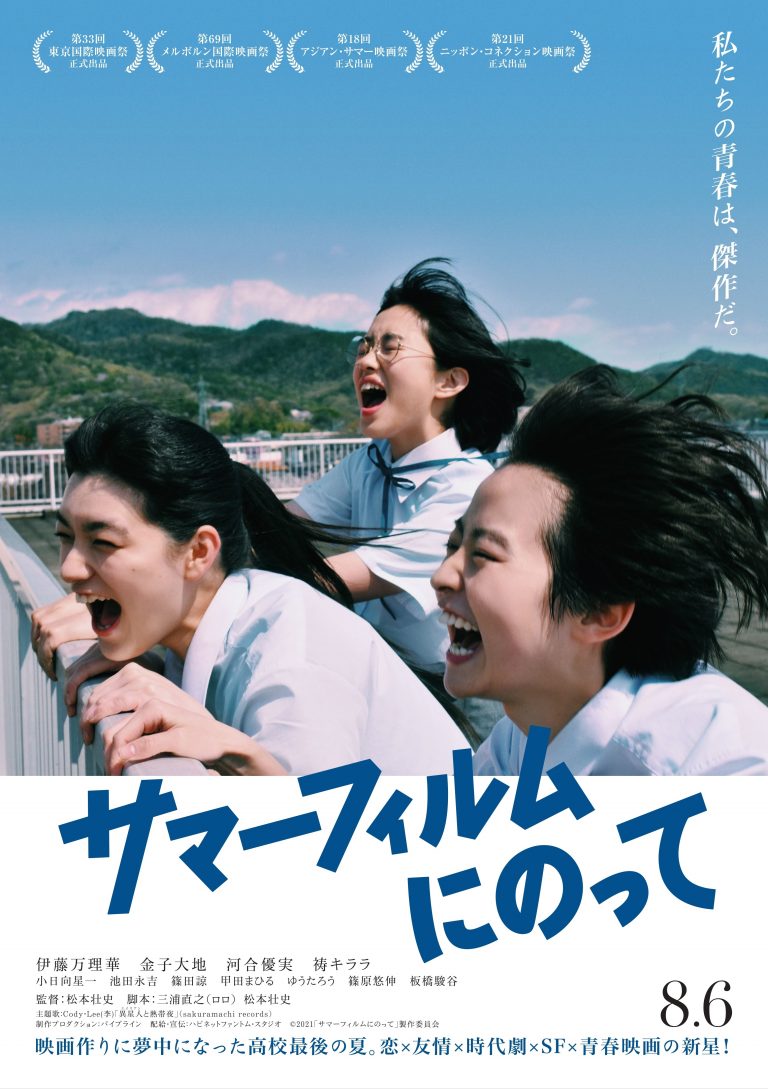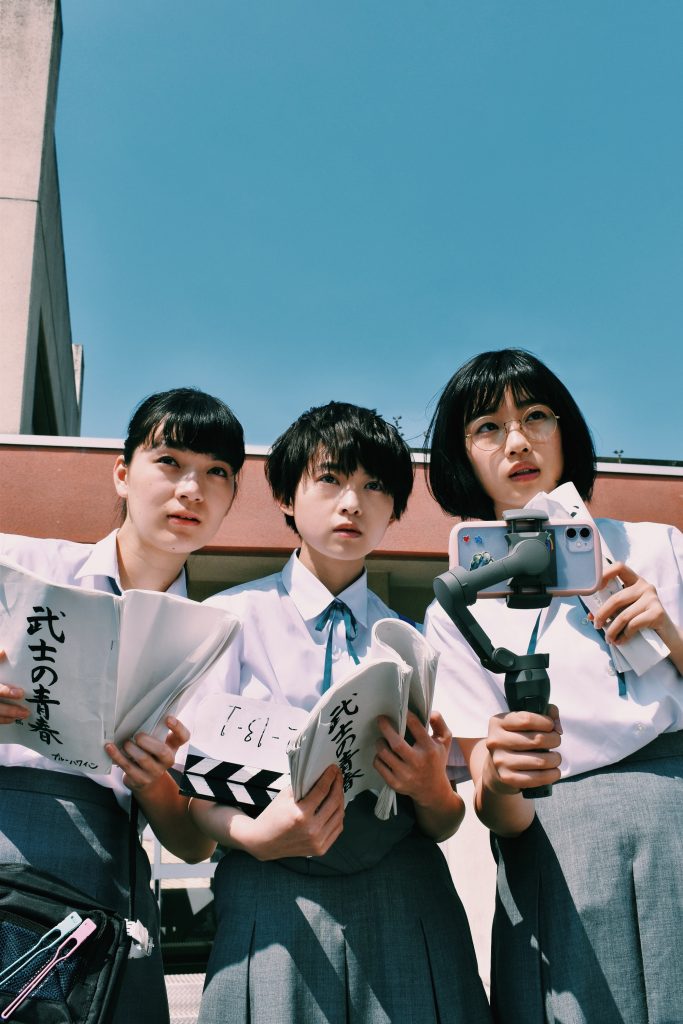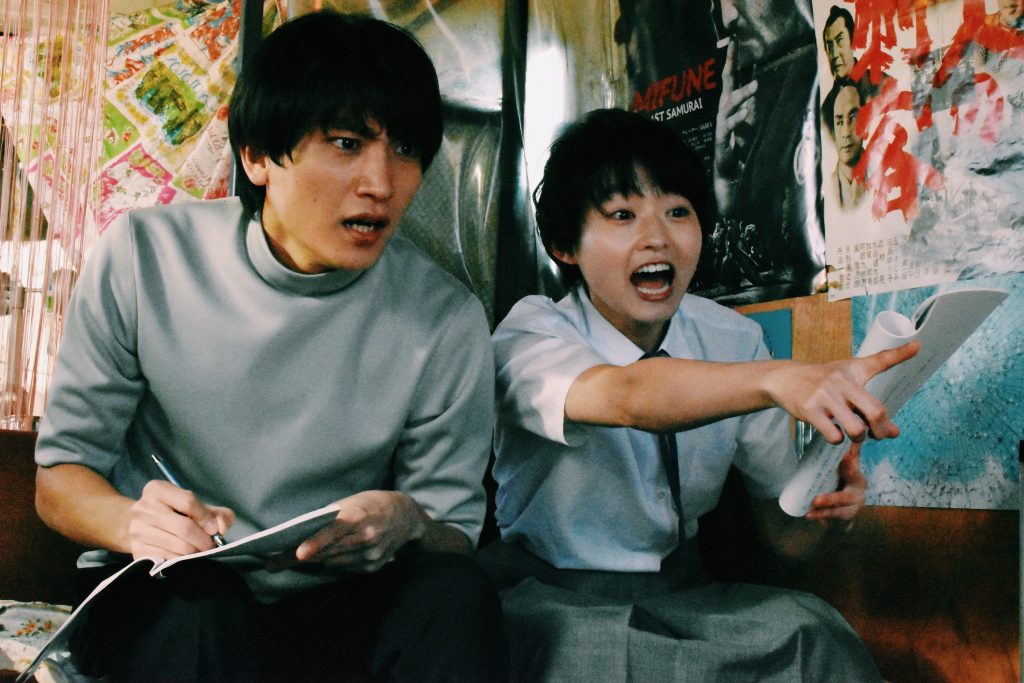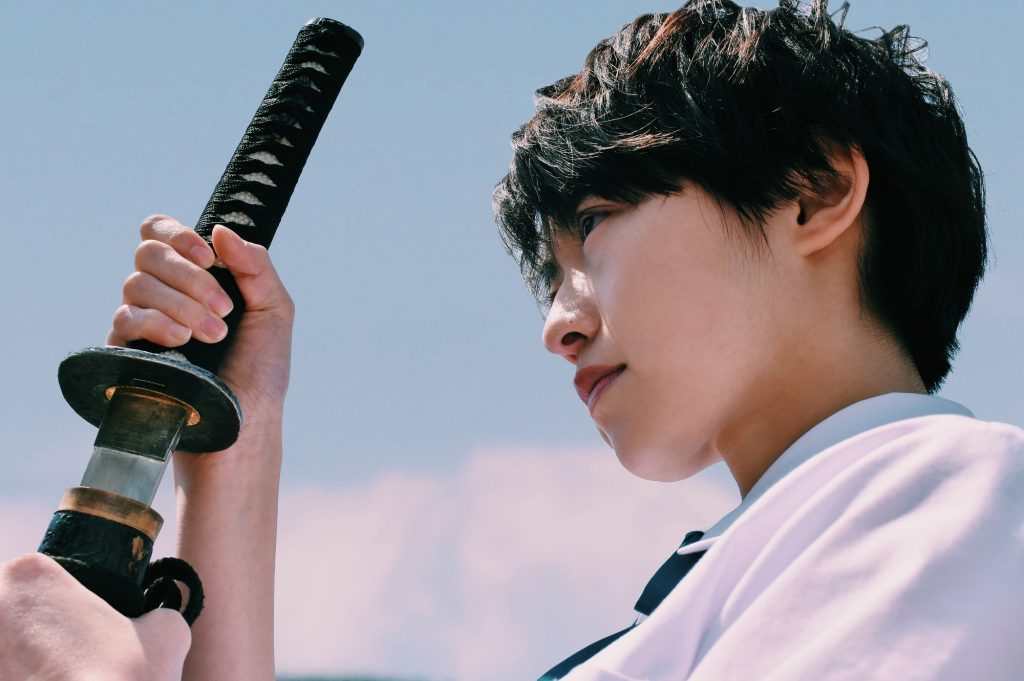
Synopsis : Barefoot and her friends decide to make a samurai movie, gather a unique cast and staff for the production, and try to screen it at their school festival. During the production, Barefoot finds out that Rintaro is a time-traveler from the future.

An Exclusive Interview with Director Sôshi Masumoto
Q : In this movie, the main character, Hadashi(Barefoot), is a girl who loves the period drama of a major Japanese actor, Shintaro Katsu, and hates the sparkling romantic movies made by his classmates. I wonder that you had something similar mindset as Hadashi, Isn’t the part that Hadashi hate towards her classmates’ sparkling romantic movies is a projection of your feelings towards some of the recent Japanese movies which you hate?
S.M : Around 2018, when we planned “It’s a Summer Film”, there was a big boom in the genre called sparkling romantic movies in Japan, which high school students at that time went to the cinema to see those sparkling romantic movies. So, I’m sure there are some high school students in Japan who are frustrated because they can’t share their “likes” with their classmates. That was one of the ideas. So I didn’t project my dissatisfaction on the screen for this one.
Q : How did you cast Marika Ito in the role of Hadashi? She is from a group called, Nogizaka46, and what part of her sensibility seemed to be suitable for this role? When I listened to her song “Hajimarika (Beginning)” on YouTube, I found her very expressive woman.
S.M : At Nogizaka46, where Marika Ito was belonged to, a short film called “Individual PV” was regularly made with each member as the main character. Among them, the work starring Miss. Ito has always been by far the most intriguing, and I have been paying attention as an actor from the beginning. Like you said, one of the decisive factors is the expressiveness shown in “Hajimarika(Beginning)”. In addition, Miss. Ito held a solo exhibition, talked with creators in magazines, etc. I knew that she was interested in creative works, so I thought that there was a part that could be connected with Hadashi in the this film, so I offered it.
Q : In this film, I thought it was interesting that adults such as parents and homeroom teachers did not intervene between Hadashi and his friends, focusing on the mindsets of boys and girls. Did you deliberately avoid interacting with adults in the movie?
S.M : First of all, my mission was to keep the movie itself in the 90-minute range. I talked about what I should talk about, and omitted the rest thoroughly. So, from the early stages of writing the script, I removed the depiction of the existence of adults and the family. There was also the aim of covering the entire work with a fantasy by making it a story that adults do not appear in.

Q : While actors around the age of high school students were cast, Shunya Itabashi’s(He’s 37 years old now) casting was the most appealing. It brought me back some memories of high school where there was at least one student who looked very old or mature in the class.
S.M : I agree. I aimed for the strangeness of having old friends in the class. At film festivals around the world, there were some impressions that “old classmates are unique,” and I thought that this feeling might be universal.
Q : This film has been showing at film festivals around the world. Please tell us which film festival in which country the audience responded well, or was it a reaction that you didn’t receive much in Japan?
S.M : I can’t say anything because I haven’t read the reviews of every country, but I thought the difference with the Japanese reaction was surprisingly small. There were many impressions that the presence of the Covid 19 which wreck and the future of the movie overlap, and I thought that it was a unique
Q : I have heard that the shooting was interrupted once due to the COVID-19 pandemic, but how did you resume filming while keeping the actors and staffs motivated?
S.M : During the interruption period, I edited offline(Temporary editing performed using a work tape that is a copy of the master tape (original material) in video editing)with the shooting material so far. Since I was able to shoot in sequence, offline editing also gave me a chance to get an overview of the whole movie, and the interruption period was rather a positive preparation period. The last scene was so linked to reality that I was worried about rewriting the last (also synchronized with Hadashi in the play), but unintended links have a positive effect on the movie. Believing that, I went to shoot without changing the last scene.

Q : What impressed you most while you’re making this film? Are there any scenes that stood out or special feeling for?
S.M : On the first day, I shot a scene where the Beatban(kickboard) and Hadashi call each other’s names. When I heard the voice calling each other’s names, I was convinced that it would be a good movie.The scene of saying goodbye to the last is also impressive. All the actors and staff who were there were concentrated, and there was a dense and special atmosphere.
Q : To what extent did you consider showing this film at overseas film festivals at the production stage? And what kind of part do you want overseas audiences to feel through this film?
S.M : I wasn’t really concerned about the overseas release. So I still can’t believe the fact that many people are watching this film at overseas film festivals. This is a work about creation, and it is also a work that believes in the power and preciousness of the feeling of “Something you like.”
Here’s the trailer of the film.

